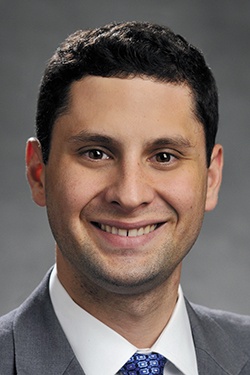Planning for long-term care is crucial for retirement (OPINION)
by November 7, 2016 12:00 am 238 views

Having a plan in place to prepare for a long-term care event may be one of the most important steps you can take to help ensure your future financial security. Yet, it’s the one area of financial planning that often goes unaddressed.
Although individuals who live past age 65 have a 70% chance of eventually needing some kind of long-term care, less than a third over 50 have addressed the need for long-term care within their own retirement plan, according to the U.S. Department of Health and Human Services.
Each year, more than 23,000 Arkansans receive services in long-term care facilities licensed and inspected by Arkansas Department of Human Services’ Office of Long Term Care (OLTC).
The questions is, what is considered long-term care?
Nursing home or hospice care facilities come to mind, but long-term care also refers to services provided to chronically ill people. These services are in place to help with routine activities such as bathing, dressing, toileting, transferring, continence and eating. It is also in place to create substantial supervision to protect an individual from threats to health and safety due to a severe cognitive impairment.
While nursing homes and hospice care are a major part of the long-term care community, a few other areas include assisted living facilities, in-home care and adult day care.
One of the biggest concerns in the long-term care industry is the increasing cost of care. In 2015, the average cost of care in Fayetteville nursing homes was $197 a day, while home health care coverage was about $25 an hour, according to Northwestern Mutual’s 2015 Cost of Care survey.
With the minority of people planning for this potential expense, how are people going to afford it in the event of an incident?
For most Americans, Medicare becomes our health insurance at age 65. It is designed to pay for medically necessary skilled care for acute, short-term conditions such as broken bones, emergency surgery or a heart attack. Chronic medical conditions typically evolve over longer periods of time and generally require non-skilled and non-medical care.
Medicare pays nothing in the event of a long-term care situation of more than 100 days.
Medicaid pays the largest share of long-term care services. But to qualify, your income must be below a certain level, and you must meet state eligibility requirements. Outside of Medicare and Medicaid, other options to cover these costs are certain forms of personal insurances, individual’s income and assets, family help, etc.
Putting a plan in place for long-term care can become one of the most crucial parts of a confident retirement plan.
While many people think about their own financial plan, it is also important to think about your parents and other loved ones. Talking with parents, siblings, a spouse, children or other loved ones about issues of long-term care can be emotional and overwhelming. According to Northwestern Mutual’s 2014 Planning and Progress Study, 35% of people said talking to their parents about long-term care would be one of the most difficult conversations they could possibly have.
There are ways to make approaching the topic easier on everyone, whether you’re talking with your parents, your children, your spouse or other loved ones. It is important to have the conversation soon rather than later. Do your homework. Be prepared to answer questions about long-term care and what you are comfortable with in the event of a long-term care situation.
Just as important as educating yourself is being positive and showing respect. Don’t push making a decision right away. You’ll need to have more than one discussion with your loved ones, and that’s OK. Just don’t forget to follow up.
The thought of a long-term care situation can be nerve racking, but having a plan in place will provide a feeling of security.
Joshua Montanez is a financial representative with Northwestern Mutual Northwest Arkansas. He can be reached at 479-443-1339 or by email at [email protected]. The opinions expressed are those of the author.
